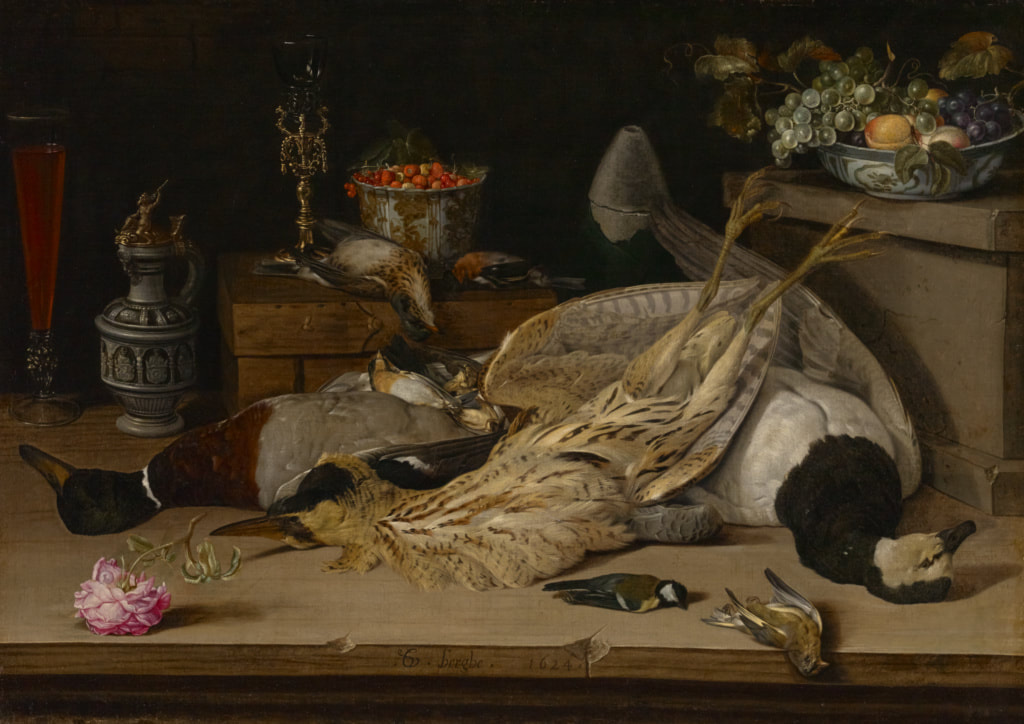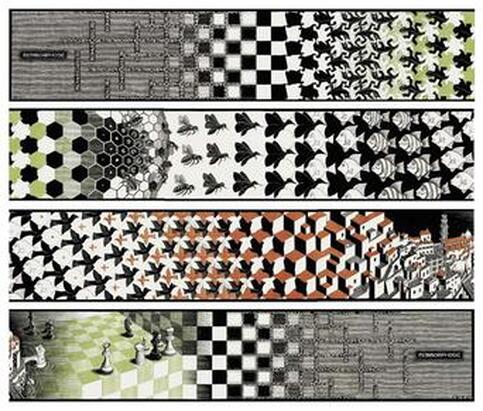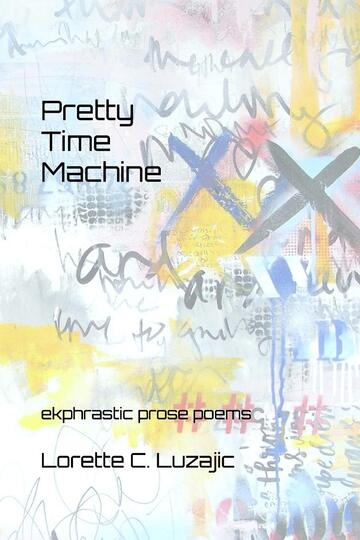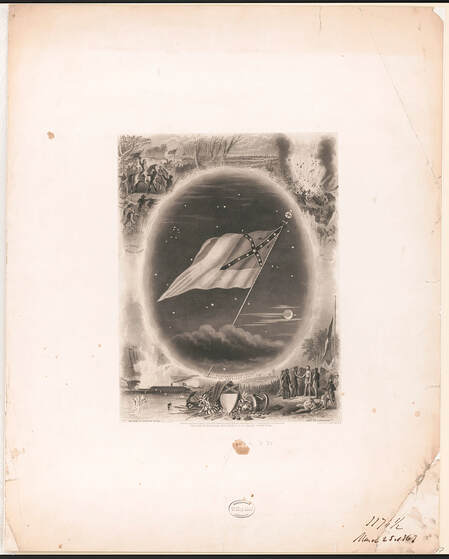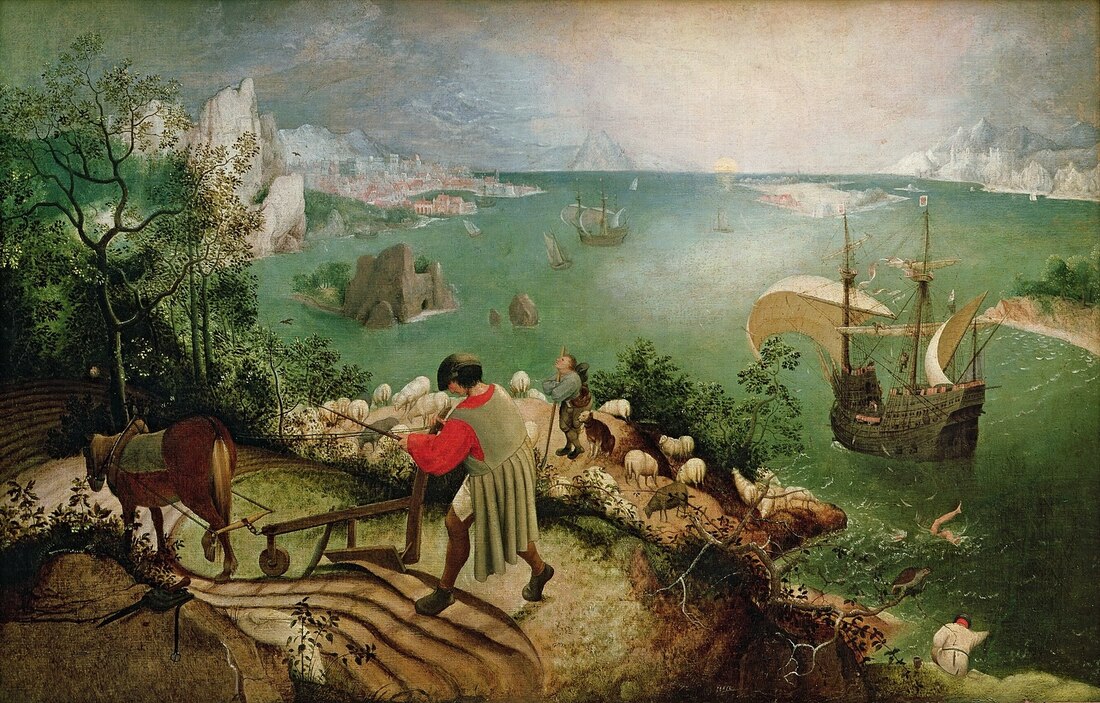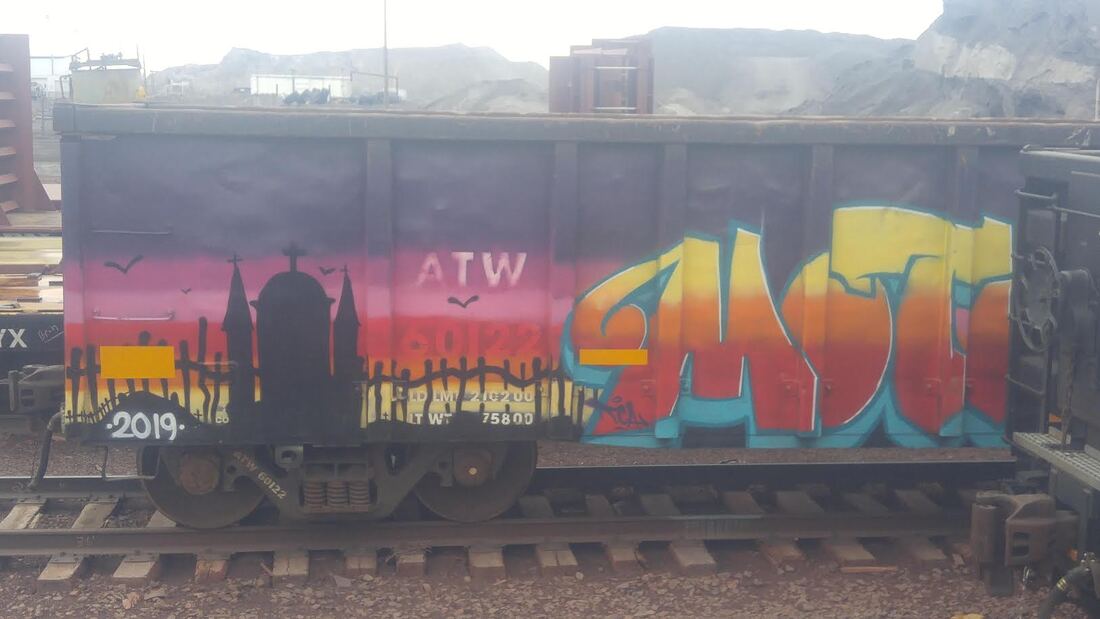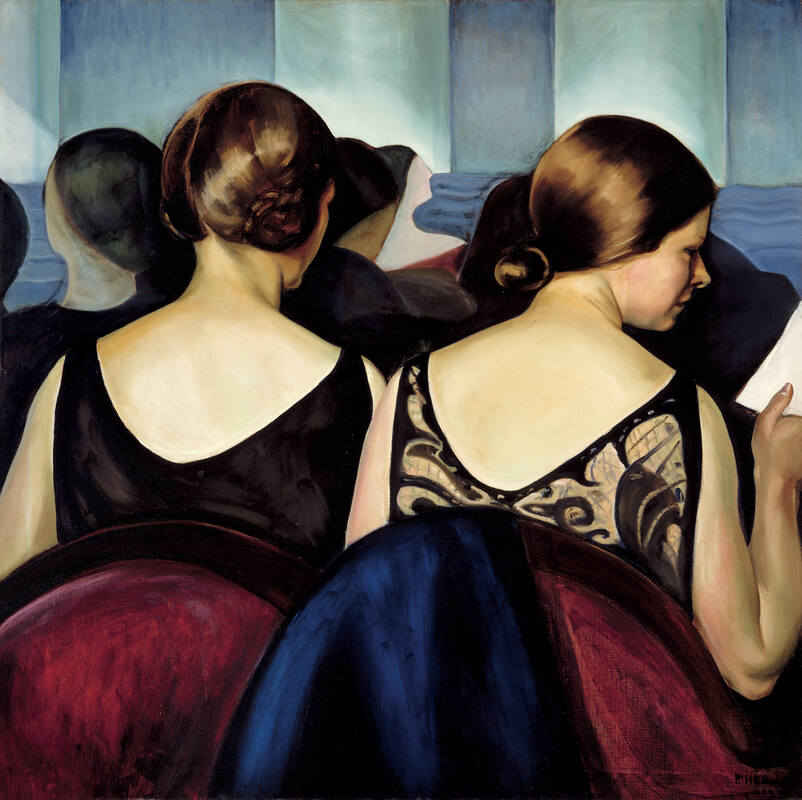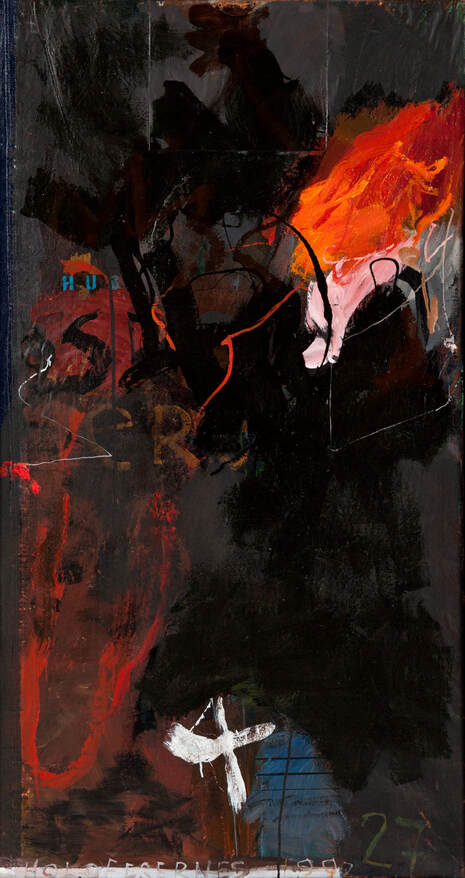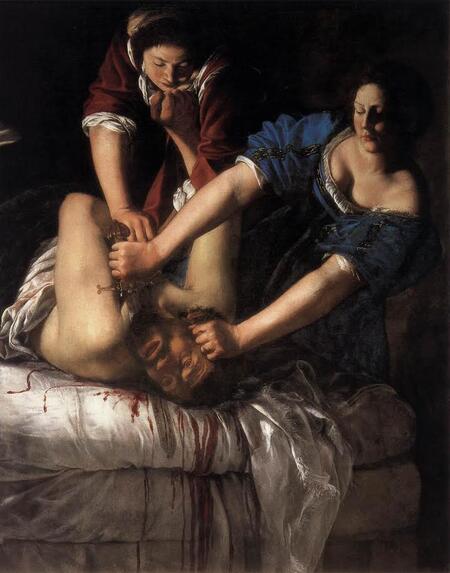|
Dutch Masters On a bed an island over broken glass we make love. Outside the air hoarse with the drone of power tools saws or drills or nail guns surging with pressure, surging with the two of us over whitecaps of skin through whirlpools of hair the kind that curls up next to night. It’s cold in the city and it’s cold in us too—us two in the bed over the one broken glass from our cupboard, the first real loss but the hundredth in a series I imagined, bored, every day a still life sans dried figs, wrung goose, molded cheese a life lacquered with oil but somehow still incombustible. I sink my teeth into an apricot just to feel inflamed. Following you is the last motion I can remember a thick momentum in my limbs. I brought with me a silver tray enameled in cracked cerulean an offering of emptiness, a place to put loose change, spare keys things we might need later, always later because now is never the time for laundry or locked doors, only for lying naked on the bed over broken glass we Poured as if it were water, as if those shards were the liquid we needed to soothe throats hoarse from yelling the throat a flesh-covered power tool drilling into silence, cutting up calm making the air itch with the stillness of a sentence just ended, of a promise kept too long, left out overnight like you a gasping fish and me a waxy, spoiled fruit. Our flavor is its own palate, its own platter cracked and blue. In school they taught us energy comes in two forms: kinetic and potential the falling and the about to fall. In a fluster of sheets, white tablecloths loose in Rembrandtian darkness I wonder which we are. If the former where are we going? If the latter what are we waiting for? Saws or drills or nail guns the droning still sounds the same. We think maybe love just needs space to grow, the way our dried fig skin, hand-wrung hair needs oil or water or things that don’t mix the way we do, our mouths yellow with morning and sour as cheese. I kiss the hollow of your ear just to start the noise, to stop us from becoming what we already Are and what I never thought we’d be, Dutch masters of dim outlooks, broad brushstrokes, and tables weeping with plenty, full of opportunity, devoid of choice the way we are this morning in bed over the broken glass on the floor forbidding us from leaving shaming us for staying, for not getting up to grab the broom. For not sweeping our remnants in the trash. The afternoon becomes a riddle then one whose answer is like all answers a question that’s overflowed, unable to contain the light seeping in at the corners: Is a still life still life? Neither one of us knows, and so we make love make do. Joshua Ambre Joshua Ambre is a writer and recent graduate from the University of Arizona, where he earned degrees in Creative Writing and Classics. His fiction and poetry have appeared in the University of Arizona's Persona and Cornell University's Rainy Day, and he was named a poetry finalist in the 2015 Lex Allen Literary Festival at Hollins University. He is currently living and working in Boston.
0 Comments
georgia pelvic bones & ram skulls open the door to ghost ranch canyon to reveal a patch of cobalt sky: open shell, open flower, open drawer, open valley open up, it’s me. georgia, you are on my mind Susan Michele Coronel Susan Michele Coronel graduated with a B.A. in English from Indiana University-Bloomington and an M.S. Ed. in Applied Linguistics/Teaching English as a Second Language from Queens College (CUNY). She is a lifelong lover of poetry, and has studied with Yusef Komunyakaa, Tina Chang, Joanna Fuhrman and Annie Finch. Her poem "British Rhapsody" was published in issue #7 of Newtown Literary Journal. She has worked as a journalist and blogger, and as an elementary and ESL teacher. Since 2004 she has lived in Ridgewood, Queens, where she owns and directs a preschool/daycare program.
Tessellations a rabbit sneaks over my windowsill spills oblong light across the floor viscous as cream curdles in a snarl of salamanders fluorescent on the walls that bloat bulge suppurate burst the air hums bees in my hair crawl over my skin i grope for some hold-fast but corners collapse light and shadow striate fish swim with the waves against the waves darkness lifts where the ceiling used to be a shriek of gulls flecks on cloud not bombs or planes but birds the colour of blood spills on to rooftops and moon-shadowed stairs to nowhere war a game played without rules pieces drift in liquid light teeter at a precipice floor dissolves in darkness i cling to an edge while all night long an unembodied voice detonates the news In dawn’s faint light I construct lines, squares, rhomboids, hexagons, to plaster absent walls with tessellations. Marian Christie Marian Christie grew up in Zimbabwe and has lived in South Africa, the Netherlands, Oman and Scotland before moving to her present home in Kent. When not writing or reading poetry, she looks at the stars, puzzles over the laws of physics, listens to birdsong and crochets gifts for her grandchildren. https://marianchristiepoetry.net/ Twitter: @marian_v_o. Dear Friends, I am truly grateful to the ekphrastic community for the response to my book, Pretty Time Machine: ekphrastic prose poems. I hope you will take this time to read a review by contributor and art critic Donald Brackett. I am surprised and honoured to be mentioned among writers like Fernando Pessoa and Franz Kafka! Click here to read his thorough and insightful review. Thank you, too, to editor Alan Catlin, at Misfit Magazine, for an issue with two features on the book! Wow! Read Alan's review here. Many thanks to Kyle Laws for a behind the scenes interview in the same issue. Click here. In an embarrassment of riches, I am thankful to Clare MacQueen, editor at MaQueen's Quinterly, for being recognized this issue as Featured Artist. Scroll down to find two poems, several artworks, and an interview with Jordan Trethewey. You can read more poems from the book at Blue Heron Review, on the Featured Author page. Please scroll down for another interview, with Mary McCarthy. Thanks to Mary and to editor Cristina Norcross for the privilege. I am truly blessed. There are a number of reviews up at Amazon and at Goodreads, too. Thank you to each and every reader and all of you who took the time to share your thoughts about the book. I can't thank you enough! I hope you are all staying safe and sane during these difficult days. Lorette The Confederate Battle Flag Speaks Out During the Civil War I flew over battlefields, stood for secession and Southern pride. After the war General Lee took me down, but those who aligned me with slavery carved an X through my heart, let thirteen white stars shine as a symbol of racial divide. Today, some long to belong to a superior race. They link me to video games that flood their minds with gunfire so fierce it soils their reasoning. Do not hoist me in midair to flap like a cruel spirit. Let me rest among archives. Close these wounds of war. Carolyn Kreiter-Foronda Carolyn Kreiter-Foronda served as Poet Laureate of Virginia from 2006-2008. She holds a Ph.D. degree from George Mason University, where she received the university’s first doctorate, an Outstanding Academic Achievement and Service Award, and a Letter of Recognition for Quality Research from the Virginia Educational Research Association for her dissertation. She has co-edited three anthologies and published eight books of poetry, including The Embrace: Diego Rivera and Frida Kahlo, winner of the Art in Literature: The Mary Lynn Kotz Award. Carolyn also works as an abstract colorist artist. [www.carolynforonda.com] Landscape With the Fall of Icarus The body had been in the shallow water at the base of the culvert for a while. A splash had signalled its arrival. A truck driver saw something shapeless through the weeds as he sped along, but he couldn’t say for sure what it was, and he wouldn’t be travelling that route again for another month at least. He had deliveries to make, so he’d just shrugged to himself and hadn’t given it a second thought—he could always stop and take a closer look next time. He quite likely might have, but in the interim, his mother called to say his dad was sick with cancer and wouldn’t last long. He and his father had never been close but the least he could do was try and get there in time to hold the old man’s hand while he died. A woman in a sports car noticed a wing-tipped leather loafer peeking through the grass as she passed, but people were always tossing garbage out their car windows. If you’d asked her if she didn’t think it was strange that someone would throw away such an expensive shoe, she might have told you, rather dramatically, that she once pulled a ring off her finger and dropped it over the side of a cruise ship after she caught her fiancé with one of the on-board entertainers. She wouldn’t tell you that it was a male dancer—she hadn’t even told her best friend that. It might have occurred to the young couple in the SUV that it was odd to see a fairly new briefcase caught up in the scrubby bushes that lined the ditch by the culvert as if it had fallen from the sky, but they were both equally distracted: her, because they were going to be late to her parents’ house for dinner and him, because he didn’t want to go in the first place. When she announced excitedly that her sisters were going to be there, he sighed inwardly, turning to look at her with a mixture of adoration and irritation, just as they drove by. Of all the people who might have thought to stop and investigate why a kettle of vultures was persistently circling above a particular stretch of this well-travelled road, you’d think it would have been the highway patrol officer who was designated to guard it. But vultures weren’t unusual at this time of year, especially with the uptick in roadkill that he’d been noticing lately. He wasn’t a fan of raccoons but still, it was sad the way they lay there all stiff with their tiny paws reaching up towards the heavens in futility. Once the weeds start to die under autumn’s frost, you might be able to discern a pale hand gripping a burdock leaf (or is it a feather, still dripping with melted wax?) if you aren’t going too fast, but no one ever slows down if they can help it. We all have our own places to be, don’t we? Suzanne Craig-Whytock Suzanne Craig-Whytock is a Canadian novelist published by Bookland Press. Her shorter pieces of writing have been featured in Slippage Lit, X-R-A-Y Literary Magazine, Women Writers, Women('s) Books, Spillwords Press, The Sirens Call, and Elephants Never. She was recently nominated for Publication of the Year (non-poetic) by Spillwords Press. For the Artist I Call Moth The inspiration appears to be New Mexico by the way the cliff behind seems carved as if coal were taken from it near Farmington, but I find it’s huge piles of slag, the last by-product of steel. Or Arizona for the cathedral with similar spires and crosses in Tucson named after Saint Augustine the Southwest full of churches behind coyote fences and everywhere large birds loom circling for anything they can bring down outside what’s meant to keep a predator away. The sky reflects dawn because the other day it rose in the same colours I call lemon, peach and watermelon, dark strip that’s become church a heavy cloud over the river obstructing light. I guess the letter after MOT is H, room and time for only one as the artist paints before the train pulls from the station with the scrap of crushed cars headed for Pueblo, boxcar dented so many times from carrying debris that the railyard of Evraz Steel is where the canvas displays bounded by bars along Northern Ave. and I-25 as automobiles zoom north to Denver. Kyle Laws Kyle Laws is based out of the Arts Alliance Studios Community in Pueblo, CO where she directs Line/Circle: Women Poets in Performance. Her collections include Ride the Pink Horse (Stubborn Mule Press, 2019), Faces of Fishing Creek (Middle Creek Publishing, 2018), This Town: Poems of Correspondence with Jared Smith (Liquid Light Press, 2017), So Bright to Blind (Five Oaks Press, 2015), and Wildwood (Lummox Press, 2014). With eight nominations for a Pushcart Prize, her poems and essays have appeared in magazines and anthologies in the U.S., U.K., Canada, and Germany. She is the editor and publisher of Casa de Cinco Hermanas Press. Inside the Cut Complexity The mind was split & mended Each perception divided into more —Brenda Hillman, "Practical Water" With disciplined palette the careful clutter built itself, angle over decade, space over time, crosswise and cautious, unreadable until the explosion, off-centre, prodigious, lit the intensities, star-shot over all, hard, gemlike, pushing its points into the matrix and a slow large turn over the waters of creation sent new thought spinning, weaving, through the silver void, into the heart. Shirley Glubka Shirley Glubka is a retired psychotherapist, poet, essayist, and novelist. Her most recent chapbook is Reflections Caught Leaping: poetry and related prose. Her latest novel: The Bright Logic of Wilma Schuh. Shirley lives in Prospect, Maine with her spouse, Virginia Holmes. Website: http://shirleyglubka.weebly.com Theatregoers The house lights are still up. For us, this moment means the murmuring curtain, the point of all our preparation. The occasion still occasions dress and effort, sisterly assistance, patience, a handbag enthroned on a lap; taste is an asset. At last, the lights go down . . . * The second act seemed much the same. The butler did not do it, and the crown prince remained at large, taking his chance to leap from the castle turret – something like that. Applause dies of relief. “One cannot call it a waste of time,” retrieving but the fall of a long blue gown . . . Michael Caines Michael Caines is a journalist living in London, who has had poems published by Visual Verse and Nine Muses. ** To Prudence Heward Regarding At the Theatre You made their row and seats the stage compelling thus that eyes engage their flawless skin well brought to bear on point they made by being there alone as proof of intellect now disinclined to genuflect as if no more than beauty's charm on brawn of brazen power's arm. How well you have them play their scene on silent canvas you convene to sound the blunt and thundered roar of rumbling change forevermore that by pretense to turn and read a backward glance could wryly plead. Portly Bard Portly Bard: Old man. Ekphrastic fan. Prefers to craft with sole intent of verse becoming complement... ...and by such homage being lent... ideally also compliment. ** A Safe Place A heavy red curtain rises on another world, of fairies in glittery gossamer, leaping across the stage, of burly tenors clad in sackcloth, their voices bellowing into the balcony, and shining silver armor that rattles as knights rush to rescue distressed damsels in dazzling gowns. Tales in the theater are safe. The chill of pain remains outside, where hearts are wracked with despair by rumblings of war, voices of hate, and the blaring silence of those who turn away. Here, love is lost, redeemed, reclaimed. Battles end in death, song, and encores. When the final act is over, and the curtain comes down, the audience heads for home, where their gray lives continue and their stories never end. Shelly Blankman Shelly Blankman lives in Columbia, Maryland, where she and her husband share their empty nest with two rescue cats and a foster dog. Their two sons, Richard and Joshua, live in New York and Texas. Shelly spent much of her career in public relations and journalism. Now she has returned to her first love, writing poetry. To her joy, Richard and Joshua recently surprised her by publishing a book of her poetry, entitled Pumpkinhead. ** Sister Act As sisters we act, staged for the play identical backlines, red velvet seats she watches the audience I read the script Dressed around us the critics – suited handshakes, rim-hatted nods convention conforming conversations rife When darkness embraces, curtains lift and spotlights turn to the stage the seated become public and the pressure of company gives Sister act, as sisters we act we visit the theatre united perform as was written in the play so the reviews tomorrow are kind Petra Vergunst Petra Vergunst is a poet living in Northeast Scotland who is interested in how we understand, relate to, and participate in our world. Currently, her writing takes inspiration from visual art. Her narrative performance poem Embrace was published by Lulu Publishing (available from Amazon). ** Braided and Coiled i. The Puzzle It’s not the sensuous, touchable skin of the two women, the softness of the velvet, the indefinite depiction of the people in front of them. It’s because it was painted in 1928. Because old-world elegance had become old-fashioned. Because women in flappers of silk and fringe quick-stepped to the Charleston, the Fox Trot, the Texas Tommy. Because twentysomethings, wild and carefree, released from a world at war, broke the stays of society’s corset. Because women could grace theatres in pairs, in satin and lace, not on some man’s arm. Because they abandoned the upswept look held by copious hairpins, cropping their hair in short bobs, pin-curls, and waves. And yet, one woman sits self-contained, two shiny coils, long tresses braided and pinned behind her ears. At the theatre with a woman friend, independent, totally modern but for this quaint touch of modesty. ii. A Proper Woman Pearl Bonham was stern yet kind, statuesque, and old-world, her gray hair divided, two coiled braids, one behind each ear—the way her German mother told her a proper woman should appear in public. In church each Sunday, I studied the shape and intricate weave. Each night, I imagined her unpinning the long, thick tresses and brushing them 100 times—the way her German mother told her a proper lady cared for her hair. But I cared nothing about that then. She was seventy; I, a martyred ten-year-old, not daring to contest my condemnation to the styleless whims of an old woman with dull scissors who chopped hair for a quarter on her back porch. My dreams focused on long hair braided by day, brushed at night until it flowed like silvery waves over my shoulders and down my straight aristocratic back. Sandi Stromberg Sandi Stromberg is a former magazine feature writer and editor living in Houston, Texas, after 21 years abroad. Her poetry has appeared in The Ekphrastic Review challenges, as well as other small journals, anthologies, the Houston Chronicle and San Antonio Express-News. She has a poem upcoming in a new anthology on vultures, Purifying Wind, from Moon Shadow Sanctuary Press. ** At the Theatre Like so many times in our past, you suggested a fun evening for my birthday including dinner at La Trattoria in downtown Seattle. I was so excited: no kids, no responsibilities and possibly a chic, small, intimate lounge after the meal and an hour or so to chat. Like so many times and your recommendations, I wore the black, scoop-neck with ecru swirls that reminded you of flowers. At the last minute you came over and helped me with my hair, a nape-touching chignon you said would complement the feel of the dress. Like so many times when we reached our destination, were shown to our seats and waiting for the curtain to rise, and after you removed your lacy pashmina, laid it across your lap - my ecru swirls felt gaudy, out of place and my tightly wound bun bristled at the edge of my neck, not as alluring and perfect as you professed. Like so many times, your light shone while mine, a flicker, was hidden under a bushel. Like so many times in our past, I sat a little apart from you, hiding my disappointment, reading the playbill. too many years lost where does friendship go at the end will it leave quietly? Jane Lang Jane Lang writes from a mostly personal point of view and has had her work published in several on-line and print publications. In 2017, she sent her chap book, Eclectic Edge, to family and friends in lieu of Christmas cards. Jane was nominated by the editor of Quill and Parchment for the 2019 Pushcart Prize, receiving an Honorable Mention. ** Emboldened at the Theatre How daring we feel, new women of the 1920s, venturing out unescorted locks swept up, exposed neck, back and arms, and no chaperone to monitor our behavior or talk us out of dining unattended or serve as a deterrent from this glorious scandalous freedom. Elaine Sorrentino Elaine Sorrentino is Communications Director at South Shore Conservatory in Hingham, MA. Her work has been published in Minerva Rising, Willawaw Journal, Glass: A Journal of Poetry, The Ekphrastic Review, The Writers' Magazine, Haiku Universe, Failed Haiku, and has won the monthly poetry challenge at wildamorris.blogspot.com. ** Secrets Who’s to say what secrets the sisters share, absorbed in life’s shocking melodramas and still more serious matters. She looks to her theatre programme to see if she finds there answers to dilemmas, desires, and beaus, and still more serious matters. But no, it’s all about actors and directors, about crimes and mysteries, about love, losses, and discovery, and still more serious matters. Many secrets sisters may share; but some best kept to oneself. Carole Mertz Carole Mertz, poet and essayist, writes in Parma, Ohio, where she teaches classical music. She is the author of Toward a Peeping Sunrise, at Prolific Press, 2019. ** Ingénue “When attacked sometimes, Becky had a knack of adopting a demure ingénue air, under which she was most dangerous."--William Makepeace Thackeray, Vanity Fair Artless Backless Such a dress Begs Attention like the Hound Nosing its hem and the Round leg Of the Girl Inside At theatre where Frocks hold Unholy conversations Worded with Tete a tete glances Eyelash shivers Turns of coiffured head Against one’s Hat Sleeved and unsleeved Ladies Parlay over Escorts Male and canine Sometimes other Guile is a Glove well earned Sewn on Up to the elbow Fingered but Inflexible with Rings Braceleted Until the point Where the jab Is felt And the crook Is in the arm Discreet As the opaque silk Shawl That now shrouds You Ingénue no more. Kate Bowers Kate Bowers is a Pittsburgh based writer who works for a large public school system by day. She has been published previously in The Ekphrastic Review and is a compulsive reader of anything with print on it. So if you find her staring at you oddly, you're probably holding something she can't quite read. Or, she just likes you. Kate is a trained improviser, loves to swim, and is a big fan of gardening and life. ** What Every Woman Knows
Kate was a seamstress for T. Eaton Company Limited in Toronto, specializing in hems. Once she had been destined for a different future. Her father had been a doctor, but in 1920 he had died of the Spanish flu. He had worn a face mask routinely when treating patients, but it had not been enough. His obituary read, “Overworked Dr. Reid Dies in Epidemic.” The obituary did not mention what Kate most remembered—that he had turned the colour of a bruise at the end. Kate’s mother spent down their savings account in two years. There had been a mortgage and a business loan for converting the lower level of the house into examining and waiting rooms and a separate entrance. She sold their four-square home in Humewood Park and paid off creditors. Then she and Kate had moved in with Dr. Reid’s aunt in Cabbagetown, an Irish immigrant enclave, a respectable community, but stations below Humewood Park. Aunt Eileen, whom Kate called Auntie, taught her to sew. When Kate finished high school, she went to work at Eaton’s Department Store in the Alterations Department. That is where Kate chanced upon two theatre tickets to see What Every Woman Knows by J. M. Barrie, author of Peter Pan, one of Kate’s favourite childhood books. Eleanor Hamilton, a former neighbour and acquaintance from Humewood Park, bought a dress that needed to be shortened. Eleanor had been three years ahead of Kate in school. Kate’s father had doctored the Hamilton family during the epidemic, nearly up to his own death. Now, eight years later, Kate was down on her knees with chalk, marking Eleanor’s hemline. It was a silk shift dress with a black lace bodice. Expensive. “I have two extra tickets,” Eleanor said as she stood on the stool observing herself in the mirror. “No one wants the tickets because the show is just for women. I cannot give them away.” It was a fundraiser for the Toronto Literary Club, a group devoted to women’s causes, explained Eleanor, as if Kate was generally unaware of the suffragists. There would be a talk following the play. “I’ll take the tickets,” Kate said. Eleanor clapped her hands together. “Wonderful! My treat,” she said. Kate stood and stepped back to exam the chalk marks, a long paper of pins hung around her neck like a stethoscope. “I’ll bring my mother,” she thought aloud. “It will be lovely to see her again,” said Eleanor, gazing into the mirror, adjusting her caramel brown hair. “Will we sit with you?” asked Kate. “Right behind us.” She handed Kate the tickets. Row H. On the day of the play, Kate’s mother developed a tickle in her throat. Kate shook down the mercury in the thermometer and took her mother’s temperature. “You’re a little warm,” Kate said. They agreed that she should stay home. Anyhow, she might cough and ruin the show for others, so Kate asked Auntie to come along instead. She was more adventuress than Kate’s mother, more likely to enjoy a play. Auntie Eileen was an older woman, but not elderly. She read books and thought about them. Kate put on her best dress. It was beautifully made, a McCall’s pattern. It had a dropped waist with a sash and a simple scooped neckline. She pulled her dark hair into a tight long braid. Auntie surveyed her from head to toe. “You look sharp,” she said, “but I think you need a necklace.” She disappeared into her bedroom, opened and closed her bureau drawer, and reappeared with a blue velvet box. The box was the size of a small book. “Open it,” said Auntie. Kate took the box and pulled the lid back. She was shocked. Inside was a double strand of pearls with a diamond clasp. Kate was at a loss for words, but she let her aunt fasten the strings of pearls around her neck. “There,” she said, which Kate understood as, “Thank you. Thank you for taking me to the theatre.” Kate placed her fingertips on the small cream-colored gems and reached behind to feel the diamond clasp. She admired the necklace in a hand-mirror without noticing how they had transformed her. She was too stunned. “Are they yours?” Kate asked. “No,” said Auntie, “they are yours.” It was time to leave. They pulled on their coats and departed. The Royal Alexandra Theatre was dazzling. The chandeliers in the lobby looked like inverted water fountains on the ceiling. Kate felt as if everyone were on display in a lighted glass case in the Jewelry Department. Aunt Eileen led by example through the basic protocols of checking coats, collecting programs, putting forth the tickets, and finding their seats on the first floor, row H. Eleanor and another young woman had already arrived and were seated. The way their heads bent toward one another revealed the intimacy of their friendship. Eleanor wore the black shift dress that Kate had hemmed with a no. 12 sharp, a very thin and pointed needle, to avoid snagging the fabric. Kate swelled with a bid of pride over the dress and touched Eleanor’s shoulder to say hello, just as she and her aunt sat down. Eleanor turned around, her ears sparkling with crystal earrings. “I am so glad you came,” she said with a tone that said we are friendly but only acquaintances. She took in Kate’s aunt, confused. Kate explained the situation. “It’s a pleasure to meet you. We still miss Dr. Reid,” said Eleanor as if she recalled him vividly, as if eight years had not passed, as if she had personally experienced his loss. She had not. Eleanor introduced her friend, Hazel, who was critiquing with exaggerated humor Lucille Roy’s red dress. “It’s the colour of a tart,” Hazel said, tipping her head back in laughter. Then she turned to Kate’s aunt and said, “Please excuse me for being crass, but I find Miss Roy’s dress to be inappropriate for the daughter of an uptight old biddy who headed up the failed temperance movement.” She nodded her head toward the front of the auditorium. “On that point,” the aunt said, “I quite agree.” Hazel burst out laughing. Auntie set her handbag in her lap and said, “Lucille Roy? I once knew her mother.” “Do tell,” said Hazel, who was now twisted around in her seat. “Did you drink brandy with her or do anything wicked?” “I gave up gossip for lent,” Auntie said, holding up her hand. Hazel burst out laughing again. “You’re hilarious,” she said. She rubbed her own neck, which must have started to feel tight from twisting around in her seat. “We’ll talk at intermission,” Auntie added. That is when Hazel noticed Kate’s pearls. “Those are scrumptious,” she remarked, pointing to them. Kate smiled. She saw the opulence of the necklace register on Eleanor’s face. Kate was now one of them. “Pretty,” said Eleanor, and she meant it. Her eyes softened as if freed momentarily from the sympathy that defined her feelings toward Kate. “Lucille Roy would give her eye teeth for those pearls,” said Hazel. “Stop obsessing over Lucille Roy,” chided Eleanor, and the two women turned back around to face the stage. They had done up their hair in the latest fashion, low buns rather than old fashioned high ones, although Hazel’s hair was parted and woven into two twisted plaits, which must have taken at least an hour. Kate could not imagine sitting still for that long. She squeezed her aunt’s hand, which was knobby with rheumatism. She made a mental note of how her aunt’s fingers felt, more gnarled than the last time Kate had checked. The house was dazzling with its plush red seats and cathedral-like ceilings. Kate wondered if this experience would have felt so luxurious to her if her father had survived the flu. Perhaps she would have taken for granted the splendor of row H at the Royal Alex with its chandeliers in the lobby or the pearls around her neck. Maybe the ease of her old life would have anesthetized her to these excesses. She remembered the feeling of leaving her childhood home in Humewood Park. Stunned by the loss of her father, the two years that followed unfolded in a fog. When her mother had finally sold the house and all its contents, it had been a relief to move to Aunt Eileen’s modest home in Cabbagetown, named for the vegetable gardens planted in the front yards. It felt like putting on the corrective lenses she wore to do close-up needlework. The project of living took on new definition, and she had appreciated the new straightforward plans. Kate would be educated at the public high school. She would work afterwards, of course. Her mother kept the books for an old dentist and a tradesman. And Auntie, a widow and former schoolteacher, would continue to plant the garden and can food for the winter. They would not go hungry, but they would live without frills. It was fine. But occasionally Kate seemed to walk into an altered state in which her early privilege teased her, whispering this might have been yours had someone not coughed in your father’s face. Even before the play began, an evening at the theatre was proving to be a mix of memory and wonder. What would have been hers had her father survived? A genuine friendship with Eleanor? Doubtful. Comfort with opulence? There was no way of telling. Kate had thought about needles and thermometers and stethoscopes since childhood. She had watched her father through the doorway while he treated patients, knocking on their knees with a little mallet and checking their pupils with a light. She had loved his tools. His black medical bag. There was a conversational roar in the theatre house before the play began that matched the roar in Kate’s imagination, but when the lights dimmed, the crowd quieted down after a short period of hush and shush and shh until a single soft sneeze filled the auditorium. The darkness thickened. The curtains parted. The set was a parlour lined with books, reminding Kate of her father’s medical texts, shelves upon shelves of leather spines with gold lettering in their own parlour, which her parents had called the study. On stage, a father and his adult son played checkers. Or maybe backgammon? Kate was not sure. She watched Eleanor lower her chin and laugh into the back of her hand at the opening scene, one quiet ah-ha-ha. Hazel put her hand on Eleanor’s forearm. She lowered her face in a whisper, and they both chuckled together. What was so funny? Kate wondered. Once, when Kate had just started working at Eaton’s, she had assisted the window dresser with a Christmas scene, a parlour like the one on stage. It had books on shelves and a fireplace with a wood mantel from which hung burgundy stockings with ermine trim. The window dresser had taken special effort to set up a handsome backgammon board, tipping it ever so slightly toward the glass for window shoppers. The board folded into a leather case with gold clasps. It reminded her of her father’s medical bag. She had fought with herself on this point, as a medical bag is a practical item—like a wheelbarrow—while a leather backgammon case is a luxury. The purpose of a thing mattered to her. What was the purpose of the pearl necklace? Or checkers? Kate had played checkers with her father, but he had not taught her backgammon. He had, however, taught her the art of a suture, the way it is tied off one loop at a time. His sutures closed wounds, while her stitches closed dress seams. He had once stitched up Kate when she was six years old, after she fell chin-first into the edge of a slate step at the park. Kate touched the thin scar with her thumb, the underside of her chin. She decided that the father and son on stage were playing checkers and not backgammon. In came another brother. The three men declared how worried they were about Maggie, a spinster sister, who could not land a husband because she was plain, dowdy. Kate wondered if she had looked dowdy to her aunt earlier that evening, her aunt who wore a wool skirt and a cardigan sweater that she had knit for herself, her aunt who was plain on the surface but smart and funny underneath. Like an old Maggie, the character on stage. Kate had not expected pearls from Auntie, let alone two strands of them with a diamond clasp. Maggie on stage explained the bloom of charm, a quality that—if possessed by a woman—wipes out the need for all other qualities. Kate thought about this. When she had been chatting with Eleanor over the hem at Eaton’s, Kate had asked if Eleanor had a beau. “Never,” she said. “And you?” No, Kate told her, a response that had seemed to satisfy Eleanor who said, “The thought of marriage makes my skin crawl.” “What will you do instead?” Kate asked. “Whatever I please. Travel, maybe.” Kate had never thought about marriage in a serious way. She had assumed that she would marry one day because it seemed expected. But was it necessary? If Auntie Eileen had never married, she might still be a schoolteacher, a role she often mentioned. Kate’s own mother had kept the books for her father’s medical profession, perfect columns of debits and credits, so some things were not so clear. Kate saw that Eleanor had never worked, had never earned a nickel. Who would Kate marry anyhow? She felt out of place speaking to the men in Cabbagetown. The most comfortable conversation she had ever had with a man close to her age was with Tom, a neighbour who was engaged to an Irish girl. He worked at the distillery. His thumb ended up on the bottom-side of a whiskey barrel, and it was the colour of a plum and twice its normal size when Kate saw it. She was on her way to work when he came down the street, his hand wrapped in a white bar cloth soaked with blood. Kate retrieved her father’s medical supplies and doused Tom’s thumb in iodine. Once the bleeding subsided, she sterilized a surgeon’s needle with a match, and closed the wound with five tiny sutures. Real sutures. Then she wrapped up his hand in gauze and told him not to get it wet. He healed. Afterwards Tom called her “Nurse Reid.” In Cabbagetown, Kate had made a point in the local shops and with the neighbours to say that she was a needles woman at Eaton’s, but word had gotten around about the sutures, adding to a persistent gulf between her and the folks who planted vegetables in their front yards. She could feel it. Sense it in the way they treated her, as if she were just a little regal. As for Humewood Park friends? They were cordial on the occasions that Kate saw them, mostly in the Alterations Department. Kate found it difficult to be accepted for who she was: a girl who sutured thumbs in one world and who stitched hems in another. The people who populated each of those worlds defined her on their own terms. On stage, Maggie’s brothers seemed devoted to the cause of marrying off their sister to a college student who had broken into their house, a burglar, to read their books. They reached a horrible agreement that the college student would marry Maggie at the end of his schooling for the privilege of using the family’s library without illegal entry. Contrary to how Eleanor regarded marriage, the character of Maggie seemed to think matrimony was her only option besides keeping her father’s house. It was Maggie’s second option that fascinated Kate. If the marriage agreement did not work out, she counted on her father to provide for her. What if he died? What if he died and the grand house with its library had to be sold off to pay creditors? Eleanor Hamilton had flat out rejected marriage for herself, but underneath that rejection was an unspoken assumption, the same assumption that Maggie on stage seemed to have—that their fathers would always provide. Kate contemplated Hazel. Hazel had charm. Her laughter had the pleasing ring of winter bells. Hazel was the sort of woman who could marry anyone she pleased. But would she? Was she set on spinsterhood like Eleanor? Did she or could she provide for herself? What if Kate had Hazel’s charm? Whom would she choose for a husband? It was an academic question, so she considered the characters on stage. There was John Shand, the college student, who begrudgingly agreed to marry Maggie after college. College. If Kate could have afforded college, she would have truly become Nurse Reid. But if she wrangled the plot of the play to her own desires, she would never marry a fellow like John Shand for the sake of becoming a nurse. Poor Maggie, thought Kate, she deserves better. Kate ruled out Maggie’s father, too. Too old. And the brothers cared more about Maggie’s lack of charm than Maggie as she was made. So, no, Kate would not marry any of the male characters on stage. She wondered about real people from families in Humewood Park. Had her father survived the flu, would she have married, say, a doctor? Or would she have become a nurse and worked alongside her father, depending on his practice for her own income? Could women become doctors? She had heard of one who practiced in Canada. Dr. Emily Stodge or Stowe? Her father had mentioned her once to Kate. When Kate began work as a seamstress, she saw her former neighbours frequently. They all shopped at Eaton’s. They caught Kate up on who married whom, who had babies now, whose babies had gotten the measles, but no one ever mentioned college. What did the young women in Humewood Park do besides search for men and marry them? And once married, did they do anything more than attend talks and theatrical productions and benefit dinners? They always pecked her on the cheek with kisses before leaving with their hemmed dresses, but their sympathy always filled the room like humidity. It was unbearable. Shortly after Tom had called her Nurse Reid, Kate inquired at the Women’s College Hospital for Nursing about the program. She had even taken her school records as her marks were good, and she had taken Latin, science, and math classes. Auntie had insisted upon it. But why? What good were those classes to her as a seamstress? Tuition costs for the nursing college were staggering. And the rules regarding paid work were non-negotiable. Nursing students were not permitted to work while enrolled in the program. Tuition was almost two hundred dollars a year for two or three years. Her dream burst as if punctured by a straight pin. Every woman in the theatre knew to clap. It was intermission. Up came the house lights. The theatregoers stood up to stretch and get a refreshment and resume their chatter. In the lobby, Eleanor and Hazel stood with their backs to the wall, each drinking a cocktail. Auntie had gone to the powder room. Kate saw both Hazel and Eleanor regard the pearl necklace again before launching into light commentary about the play. Hazel thought that Maggie was a riot. Eleanor said, “Can you imagine?” Kate had lost track of the plot details but not the broader story. She feigned enjoyment when actually the story line had sent her mind skidding off in strange directions. It was in the lobby that she noticed the raised red bumps on the back of Eleanor’s arms. They were faint. Not a rash exactly. Not a disease. But a symptom. She could not help but notice health symptoms, like the loss of hair on a man’s hands, heart disease, or the smell of someone with sugar, sweet ammonia. On the elevated level in the lobby, where there were tables covered in white linen, Lucille Roy moved in her exquisite red dress. It was adorned with silver and black beads from the hip down and caused the skirt to sway gracefully. French Haute couture. Lucille smoked a cigarette, which she held in an ebony and silver cigarette holder. A prop. Lucille Roy’s life was a staged play of wealth, thought Kate. Just then, Auntie appeared. She had buttoned her sweater all the way up and held her purse in front. She sized up Eleanor and Hazel, who were standing closer to each other than to Kate. “Let me treat you to a cocktail,” she said to her niece, pulling her close by the elbow. “Excuse us, dears,” she said brightly to Eleanor and Hazel and walked straight to the table where a woman was dressed in a man’s suit, serving the role of a bartender. “Two glasses of punch,” she told her, pulling three silver coins from her purse. They clinked glasses, Kate and Auntie, and ate their cherries together. Kate tied the stem of her cherry into a knot using just one hand. She asked her aunt matter-of-factly, “Am I lacking in charm?” “My word,” Auntie answered. “You have charm enough to carry out an intelligent conversation. That’s plenty, if you want my opinion.” “Whose pearls are these?” Kate asked, touching her neck. “They are yours,” said Auntie. Aunt Eileen said that she had been saving them for Kate. They were a gift from Kate’s grandmother, Aunt Eileen’s sister, who had asked her to pass them on at a time when they would solve a problem. “Are they valuable?” asked Kate. “They’re Persian,” said Auntie. This detail sound important but meant nothing to Kate. “They were purchased in Italy,” Auntie added, cocking her head slightly and nodding. So, they were valuable. The house lights flickered, signaling the end of intermission. The second act flew by. John Shand nearly gave up on Maggie, leaving her a spinster after the age of 30, but all was saved in the end when he realized that his career would be ruined if he broke his contract and abandoned Maggie for a woman with charm. No doubt this would be the topic of the talk after the play. Kate realized that Eleanor and Hazel had laughed early in the play because they had known the plot and the ending. They knew that Maggie would never know her own worth. They knew she was a negative example, a conversation piece to discuss the plight of women. Suddenly Kate felt superior to Hazel and Eleanor. They had never learned to work. They would have to count on their father’s fortunes for the rest of their lives. Kate rested her fingertips on the pearls, counting them like teeth. After the applause when the actors bowed, the lights came up again. Kate picked up Eleanor’s shawl that had been thrown over the back of the seat. It had slipped to the ground during the second Act. Kate handed her the garment and explained that she and her aunt would not be staying for the lecture. She was worried about her mother and wanted to get home. She thanked Eleanor, again, for the tickets. “We had a delicious evening,” said Auntie. Hazel was charming and Eleanor was well-mannered, so they said goodbye without revealing a shade of relief. Kate and Auntie left and hailed a cab. “Well,” said Auntie, as she settled into her seat and had closed the door. “That was an interesting experience.” “Yes,” said Kate, tucking in her feet. The cab driver pulled out into traffic. It was a clear night. The gems felt cold against Kate’s skin. “So, what is it that every woman knows?” asked Auntie. “I’m not sure,” said Kate. “I think we all know things differently.” “Aren’t we wise,” said Auntie. “Did you always want to be a schoolteacher?” asked Kate. “Oh, yes,” she said. “I always knew that.” The driver slowed to let pedestrians cross the street. “Do you miss it? Teaching school?” Kate asked. “I do,” said Auntie. “Especially in September.” The cab took off again. “Are the pearls mine to do with as I please?” Kate asked. Auntie turned her head away from Kate for a moment and suppressed a smile. After a moment, she said, “You have worn the pearls for an evening and understand by now their worth to you.” Kate nodded her head slightly. “Did my grandmother love these pearls?” “I don’t know,” said Auntie. The cab turned right onto Glenville Street, in front of the Women’s College Hospital. The Administration Building, an old tutor-styled house, was illuminated by floodlights and seemed far grander to Kate than the Royal Alexandra Theatre. “Would she mind if I sold them?” asked Kate. “She had a good mind for business and would insist on a good price,” said Auntie. Kate took in this statement. The pearls felt downright strange around her neck, but she could not have been more grateful for them, for their value, for Hazel’s observation of the necklace and how it changed Eleanor Hamilton’s expression. Kate’s eyes welled with gratitude for the tickets, for a view of Maggie in the play, for Lucille Roy’s staged life, for women’s causes, for poor Tom’s smashed thumb, for the nickname of Nurse Reid, for her father’s medical bag and sutures, for Auntie, dear Auntie, and for all that she had pondered during a night at the theatre. Siobhan Wright Siobhan Wright grew up near the Canadian border, earned her MFA in fiction writing in the 20th century and teaches composition and literature in Maryland. Her work has appeared in the Crab Creek Review, Oxford Magazine, and on stage in Baltimore. She runs an online fiction writing workshop: https://tellusastory.org. Painting #5 (1994) (i.m. Gordon Smith, d. 18 January 2020) “… forms, figures, shapes, objects, ideas, apprehensions, motions, revolutions: these are begot in the ventricle of memory…” Holofernes to Sir Nathaniel (Love’s Labour’s Lost, 4.2.1213-1217) This Black Painting drew us in, deep and deeper: we were transfixed by the guts of war, spilt across canvas made from your soldier’s kit, red raw like your own flesh torn open that day on Pachino Beach. This Black Painting claimed us, pinned us to itself precisely at the white X: specimen butterflies held fast now to your dark history, unable to flit away. Not Shakespeare’s wry schoolmaster, but the general who fell head over heels for Judith, is invoked by indictment at the foot of your canvas: “HOLOFERNES”. And thus, Artemesia’s creaking wheel takes its next slow turn: lives intersecting, unexpectedly, to some larger purpose begot in the ventricle of your memory. P.W. Bridgman P.W. Bridgman is a Pushcart Prize-nominated writer of poetry and short fiction. His most recent book—a selection of poems entitled A Lamb--was published by Ekstasis Editions in 2018. It was preceded in 2013 by a selection of short fiction entitled Standing at an Angle to My Age (published by Libros Libertad). Bridgman’s poems and stories have appeared in The Moth Magazine, The Glasgow Review of Books, The Honest Ulsterman, The High Window, The Bangor Literary Journal, The Galway Review, Ars Medica, Poetry Salzburg Review and other literary periodicals, e-zines and anthologies. Learn more at www.pwbridgman.ca. |
The Ekphrastic Review
COOKIES/PRIVACY
This site uses cookies to deliver your best navigation experience this time and next. Continuing here means you consent to cookies. Thank you. Join us on Facebook:
July 2024
|
